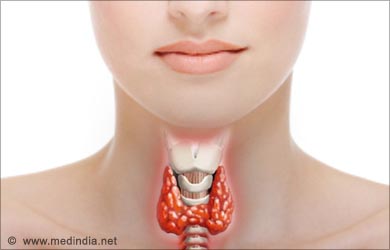What are the Symptoms and Signs of Prader-Willi Syndrome?
Symptoms of Prader-Willi syndrome include reduced muscle tone, excessive eating resulting in obesity, lethargy, growth and sex hormonal disturbances and behavioral/psychiatric disorders.
Symptoms and signs of Prader-Willi syndrome include:
- Symptoms seen in the infant: These include poor muscle tone, lethargy, poor reflexes including sucking reflex leading to feeding difficulties, decreased appetite, poor weight gain, decreased fetal movement, weak cry, failure to thrive.
- Symptoms associated with hypothalamus malfunction: Malfunctioning of hypothalamus results in following symptoms:
- Excessive eating and obesity: These symptoms appear at the age of 1-4 years. The child begins to overeat due to constant feeling of hunger. This results in weight gain and obesity. Obesity leads to other complications like heart disease and sleep apnea.

- Hypogonadism: Incomplete development of sex organs and infertility is seen in PWS-affected individuals as a result of inadequate production of sex hormones.
- Developmental and cognitive delays: PWS affected children show delayed gross motor and speech skills. They also have less IQ and experience cognitive and learning disability resulting with poor performance in academics at school age.

- Short stature: Due to reduced growth hormone secretion, affected individuals show stunted growth with small hands and feet and low muscle mass.
- Behavioral/Psychiatric disturbances: Early childhood of affected individuals is typified by temper tantrums, stubbornness, unwanted repetitive or recurring thoughts. The condition is also associated with autism, compulsiveness and difficulty to cope up with change in routine.

- Other symptoms include:
- Dysmorphic Features: Narrow facial diameter, almond-shaped eyes, narrow nasal bridge, and thin upper lip condition. Reduced or lack of pigment in the hair, eyes and skin is common with downturned mouth corners are some of the facial features of this syndrome.
- Other Endocrine Issues: Affected individuals may also suffer from other endocrine diseases such as hypothyroidism, adrenal insufficiency, and diabetes mellitus.

- Other Findings: Sleep abnormalities occur due to the dysfunction of hypothalamus which influences circadian cycle and sleep. Other symptoms include squinting of eyes, near sightedness, decreased saliva flow, altered perception and regulation of temperature, scoliosis (lateral curvature of spine), osteoporosis, seizures, skin picking, leg edema and ulceration.
- Affected individuals suffer from recurrent respiratory infections due to reduced immunity.




